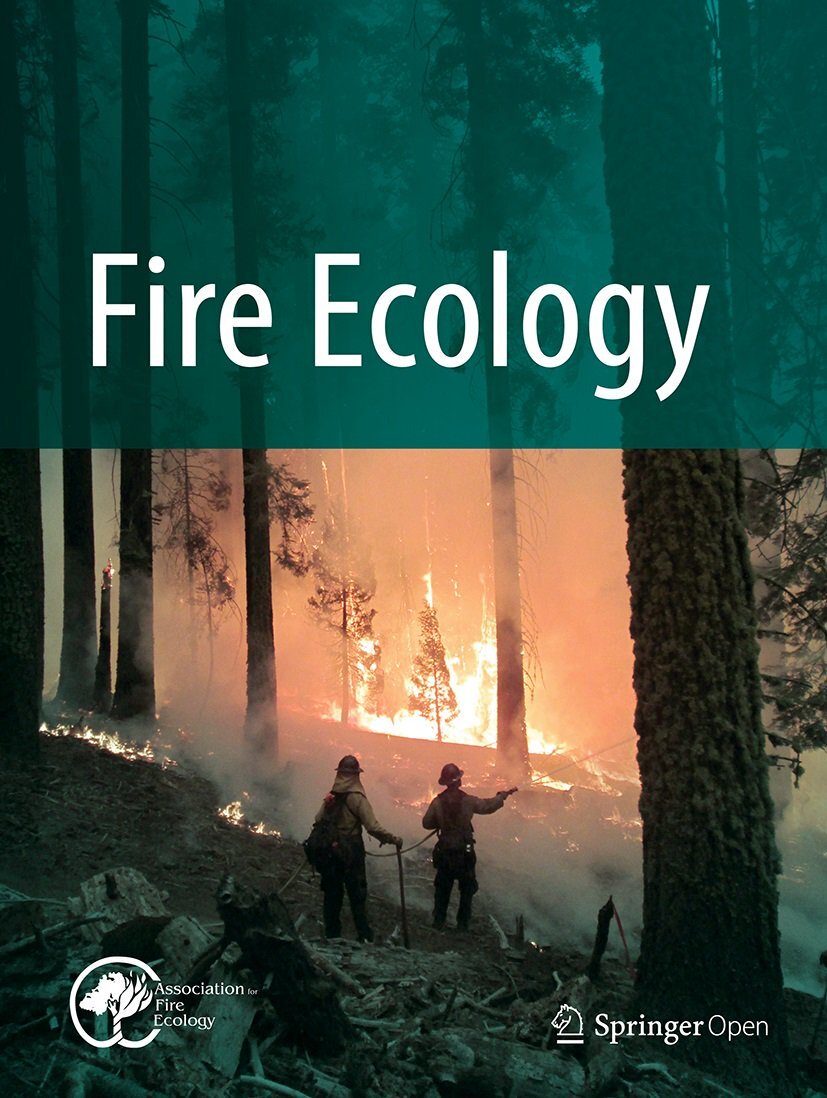Type: Full-time, Hybrid
Location: Boise, ID or Corvallis, OR
Salary: $72,553 (Step 01) to $94,317 (Step 10)
Deadline: 10/18/2024
The Shinneman Lab at USGS-FRESC is seeking postdoctoral researchers to join our research team and co-lead efforts aimed at understanding fire and fuel dynamics across the U.S., to inform strategic planning and management at a national scale. Applicants should have strong interest and background in applied ecology, fire science, fuel management, and/or spatial analyses. Experience working with rangeland, forest and/or fire managers to support science-informed decision making is preferred. Ideal candidates will have quantitative proficiency in spatial analyses, particularly working with remote sensing data, however we will consider candidates with a wide range of skillsets/proficiencies related to the topics listed.
Research topics include:
trends in wildfire activity at the ecoregional scale and identification of drivers
fuel treatment efficacy and evaluation of monitoring methods at a national scale
multidisciplinary analysis of vegetation responses to fuel treatments
estimating current and future costs and maintenance needs of fuel treatments
Qualifications: Competitive candidates should be highly motivated and possess a PhD in ecology or a related discipline with a strong quantitative background. Good communication skills and the ability to work both independently and collaboratively in a team environment are essential. Candidates with experience managing and working with large spatiotemporal datasets and fitting models in R are strongly encouraged to apply (in addition, any experience working in Python, Stan, or JAGS, or familiarity with machine learning approaches, is desirable).
This full-time position(s) is located in the USGS Forest and Rangeland Ecosystem Science Center with choice of duty station: Boise, ID or Corvallis, OR. Appointment is offered as a one-year term with the possibility for renewal up to 4 years. All renewals are contingent upon available funding, satisfactory performance on the part of the researcher, and adherence to all USGS policies and professional standards of conduct.
Duties:
As a Biologist within the Forest and Rangeland Ecosystems Science Center some of your specific duties will include:
Aids in planning and implementing complex projects involving biological, physical and/or geospatial data relating to wildfire and fuels management and/or terrestrial vertebrate invasive species management.
Builds reproducible data pipelines in modern programming languages (e.g., R, Python); aids in development of best practices that improve reproducibility, data quality, automation, documentation, and/or efficiency of software code.
Develops, implements, and/or manages tabular databases, spatial databases, and advanced analytical, computational, and/or predictive modeling tools, database protocols, and quality assurance and control plans. Performs necessary checks on data to assure their accuracy and suitability for analysis; carefully examines results of analyses to determine correctness and appropriateness of interpretation.
Specific to Wildfire/Fuels Management:
Applies advanced quantitative, computer-science, and/or statistical skills to organize, analyze and/or interpret large and/or complex data sets, including but not limited to spatial and statistical modeling and analysis (e.g., hierarchical modeling, Bayesian methods, and/or machine learning approaches) utilizing geospatial and time series data (ex. Remote sensing, vegetation, climate data, land treatment data). May conduct bioclimatic modeling and/or fire behavior or simulation modeling and/or invasive species modeling.
Specific to Terrestrial Vertebrate Invasive Species Management:Applies advanced quantitative and/or statistical skills to organize, analyze and/or interpret large and/or complex data sets on impacts of invasive species on native wildlife populations and communities, including but not limited to spatial and statistical modeling and analysis (e.g., mark-recapture modeling, occupancy modeling, hierarchical modeling) utilizing geospatial and time series data (eg. species-specific surveys, remote sensing, vegetation, climate data, land treatment data).
Boise or Corvallis Duty Station: Wildfire and Fuels Management
Corvallis Duty Station only: Invasive Species Management (specifically invasive vertebrate avian species in PNW)
How To Apply: All Applicants must apply on-line to the specific vacancy on USAJOBS by the closing date of the announcement to receive consideration. **Please Note** this position will close after 50 applications will be received, which may be before the closing date. We strongly encourage interested candidates to apply on, or as close as possible to, the opening date of Monday October 7th.
For additional information on how to apply go to: USAJOBS and search USGS-SAC-24-12555988-DHA-JM in the keyword search bar. Applications will not be accepted after the closing date. If you have questions about the application process, please refer to the point of contact listed on the job posting.
A CV and transcripts (unofficial transcripts are OK) are required. In addition, please provide as Additional Documents: (1) a cover letter detailing how your qualifications and experience have prepared you for this position; (2) names and contact information of three professional references; and (3) one relevant publication on which you are an author. Please note that this is a co-listing with a Vertebrate Invasive Species Management Team; please make it clear in your cover letter which position you are applying for. Details on how to apply are listed below.
If you are interested and have a genuine enthusiasm for fire science, but uncertain whether you meet all the requirements, please go ahead and apply!

